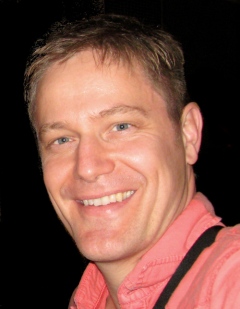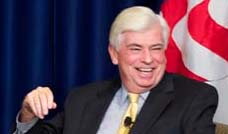
"Ever since my Peace Corps service in Cote d'Ivoire (1993 - 95) I had considered ways to set up sustainable and interesting business ventures related to Africa, and had discussed these ideas with friends, colleagues, graduate school classmates and fellow Peace Corps alumni. In 2005 I traveled to Burkina Faso to visit a friend who was running small business development programs for the Peace Corps, and was introduced to the work that rural cooperatives are doing with shea butter and other local products. Shortly after my return I got together with my current partners Jon (who had served in the Peace Corps with me) and Mamady (with whom I had worked on sourcing funds for development projects in Guinea), and we decided to make the leap from talking about a business focused on sustainable trade and investment in Africa to actually starting one."
Ivory Coast RPCV Shea Butter starts a business focused on sustainable trade and investment in Africa with Shea Butter
Social Impact Alumni Profile: Peace Corps and Shea Butter
Robert Hornsby: Co-Founder, Jobomax
Published: Sunday, October 31, 2010
Updated: Sunday, October 31, 2010 15:10
Q:You were one of the founders of Jobomax- can you talk about what Jobomax does and the process that led you to start the company?
A: Ever since my Peace Corps service in Cote d'Ivoire (1993 - 95) I had considered ways to set up sustainable and interesting business ventures related to Africa, and had discussed these ideas with friends, colleagues, graduate school classmates and fellow Peace Corps alumni. In 2005 I traveled to Burkina Faso to visit a friend who was running small business development programs for the Peace Corps, and was introduced to the work that rural cooperatives are doing with shea butter and other local products. Shortly after my return I got together with my current partners Jon (who had served in the Peace Corps with me) and Mamady (with whom I had worked on sourcing funds for development projects in Guinea), and we decided to make the leap from talking about a business focused on sustainable trade and investment in Africa to actually starting one.
Q: What social impact is the company making?
A: For years JOBOMAX has been at the forefront of consumer and manufacturer education in the US market about the differences between traditionally-produced ingredients from African cooperatives, and the industrially-produced, chemically refined ingredients that make up the bulk of what consumers see on the shelves in cosmetic formulations.
Our case study on shea butter is one example of this work. Change in these areas does not happen overnight, but last year Transfair USA, the labeling entity for FLO-certified fair trade products in the US market, added shea butter to the list of ingredients they will label in the US, and major cosmetics manufacturers we have worked with are actually developing new formulations in order to source more ingredients directly from producers in Africa.
More recently, and in a different sector, we have begun piloting a project in our supplier communities that enables local biofuel-based small-scale electricity generation for irrigation, lighting, refrigeration, cell-phone charging, and more. In places like Guinea where 80% of the population has no access to electricity, this can make a major difference in people's lives.
Q: Were there any particular course work or experiences during your time at Wharton that helped you in the current position that you are in?
A: The people you meet at Wharton - both students and professors - give you the opportunity to create a professional network that expands and pays dividends for decades. Courses in entrepreneurial management and marketing provided tools that have been useful, and of course financial modeling and valuation comes into play particularly for projects where we want outside funding. I was a SAIS-Wharton joint degree student, and studied African studies at SAIS, so that experience was useful and relevant as well.
Q: Upon graduating from Wharton, what did you want to do and were there any challenges you faced or sacrifices you had to make to get to where you wanted to be?
A: I was a Wharton Business Plan Competition finalist and started a technology company with two classmates - in May of 2000. We could fill a book or two with the challenges that involved. I think many of the sacrifices I have made over the years are familiar to many entrepreneurs: you value your vision, autonomy, and the ability to choose who you work with more than you value the security of a regular paycheck and a brand name on your CV, and that means giving up some of what money can buy - at least in the short run.
Q: What advice would you give to students looking to go into the social impact space- particularly by working through the private sector?
A: It seems to be a great time to get involved in the space. More and bigger companies are developing and acting on a social conscience, whether out of a moral sense driving down from top management, as a response to consumer and investor preferences, or both. There are an increasing variety of tools for individuals and companies to assess and monitor the social and environmental impact of the work being done by suppliers of goods and services, and more pressure for transparency regarding the sustainability of the supply chain. All of this translates into a need for smart people to help private sector entities navigate the path to doing well while doing good. I suspect Wharton's investment in the Social Impact program will provide great opportunities for future leadership in this arena.













